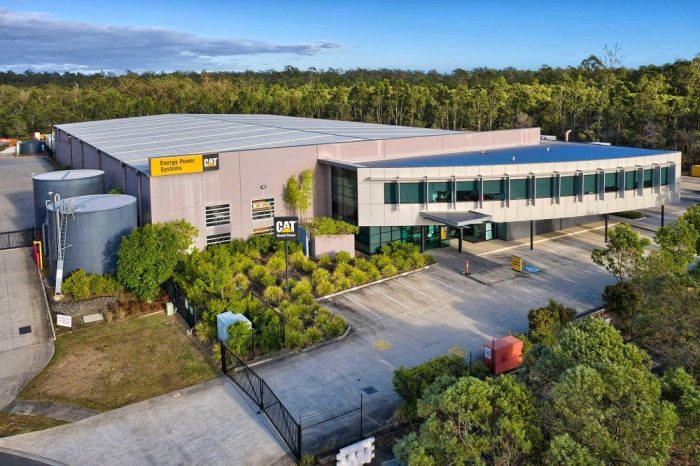Complete guide to investing with a property investment company
Published
April 1, 2020
Published
April 1, 2020

Property investors don’t have to go it alone. Today, there are multiple ways to access commercial property — from syndicators and unlisted trusts through to A-REITs listed on the ASX. Each option has unique advantages, risks, and investor requirements.
But an investor’s first mistake could be thinking every property investment company is the same. There are strict criteria they should follow to ensure they’ve found the best investment business to suit their investment strategy.
Investors should know what to look for in a property investment company:
- Skin in the game
- Corporate governance
- History of success and stability
- Access to current investors
- Regular distributions
- Unit trust investment structure
- Compliance and licences
- Robust property selection criteria
- Fair fee structure
- Adequate reserve funds
- Understand you as an investor
Real estate is often the largest financial commitment Australians make. If you’re handing your hard-earned capital to a professional investment business, you need confidence that their approach, governance, and track record align with your own investment strategy.
1. Skin in the game
You’ve decided not to invest alone. So, find a property investment company who invests alongside you.
Whether a syndicator, a REIT or an unlisted property trust, your chosen investment company should believe enough in what they do to take part in their own investments.
You can expect more transparency, integrity and care from an investment company with skin in the game. Many investment businesses focus on income growth for their own benefit. But those who invest in their own investments want to ensure the property itself is fundamentally sound and their investors’ interests are looked after.
When decisions are made for the benefit of everyone in the investment, you might even see better returns.
2. Corporate governance
Strong governance is essential in 2025’s market. Look for property investment companies with clear succession planning, independent oversight, and risk management frameworks. If leadership changes or market shocks occur, governance ensures continuity and protects investors.
If the Managing Director or CEO of the investment business jumps ship or is unable to stay at the helm, the business should have safety nets in place to ensure its investments continue running smoothly.
3. History of success and stability
A credible investment company will openly publish its track record — not just past returns, but also tenant quality, occupancy rates, and how it has managed properties through changing interest rate and economic cycles. Stability matters as much as headline performance.
But don’t stop at returns. Have a look at the tenants they’ve had occupy their premises.

- Investing with a property investment company can provide a range of benefits, including knowing when and where to purchase.
National and multi-national occupants are ideal, especially those businesses with a long history of performance.
They should also have added value to their properties. A ‘hold and hope’ strategy doesn’t apply to the best property investment businesses.
Also ask if the business knows their investors’ reinvestment rate. If investors have reinvested their returns back into the company’s investments, it’s for good reason.
4. Access to current investors
You might want to chat with the company’s existing investors.
Ask them about the returns, the communication and the feeling of exclusivity. You don’t want to feel like a number. You want to be in a partnership with your chosen property investment company.
5. A unit trust investment structure
In Australia, the unit trust remains one of the most tax-effective and asset-protective ways to invest in commercial property. Each property is typically acquired under a corporate trustee, and investors purchase units in that trust, giving them a direct proportional stake.
Each investment is effectively a property acquired under a corporate trustee as trustee of a unit trust. So, the underlying beneficial holding of the property is in the unit trust. Every investor can then purchase units in that unit trust.
Say there’s 100 units on offer. An investor may be able to purchase 5 of those, which then gives him or her a 5 per cent holding in the unit trust.
It’s the most tax effective structure here in Australia. It also offers the best mechanism for asset protection and the most effective structure for distribution.
6. Regular distributions
While tenants usually pay rent monthly, many investment funds still distribute income quarterly or less frequently. In today’s environment, monthly distributions are increasingly valued by investors seeking stable cash flow and alignment with household or retirement income needs.
Look for property investment companies which offer more regular distributions. Monthly distributions are ideal, as they allow your cash flow to stay strong, stable and frequent for the lifetime of the tenant’s tenure.
7. Compliance and licences
Always confirm that a property investment business holds the correct licences. In Australia, that usually means an Australian Financial Services Licence (AFSL) from ASIC. Compliance is not just a box to tick — it ensures the business meets ongoing reporting and investor-protection standards.
8. Robust property selection criteria
Your investment company should have transparent, evidence-based selection criteria. At minimum, this should prioritise location, tenant quality, and lease strength. In 2025, best practice also includes ESG considerations (sustainability of the asset, energy efficiency, and tenant industry resilience).
A property investment business should also be willing to get their hands dirty after purchasing a property. Whether adding value through fit-outs, upgrades or repairs, or by intense lease negotiations with tenants.

- Before investing with a property investment company, ensure they offer fair fees for service.
Ask for their property selection criteria or investment mandate before investing with them.
9. Fair fee structure
Property investment businesses will typically charge an Establishment Fee, a Management Fee and a fee to sell the property.
Most Management Fees are charged on the asset value. But this doesn’t necessarily mean the best for you. If a tenant vacates and you’re earning zero income, you’re paying a fee on an empty property. Look for investments that offer management fees on the trust’s net income. This means every dollar earned and every dollar saved is passed on to you, the investor.
It also keeps the investment business responsible for every decision to maintain the property value and rental profile.
10. Adequate reserve funds
Market conditions change, tenants vacate, and buildings age. A robust reserve fund protects against unexpected costs and ensures distributions remain stable. In 2025, investors should also expect funds to cover ESG upgrades — such as energy compliance or sustainability retrofits — as these are becoming essential for long-term asset value.
A reserve fund creates security. And it also allows property managers to react quickly. Tenants go bust and air conditioning units die. The best investors can resolve these problems in a heartbeat, thanks to a robust reserve fund.
A reserve fund also gives peace of mind. Passive investors don’t want to see their cash flow fluctuate over time. A reserve fund removes any surprises come distribution day.
11. Understand you as an investor
The best property investment companies take the time to understand you as an investor. Whether you’re a retiree or a conservative investor, or an investor who can afford greater risks, ensure the business is committed to understanding your investment needs.
For more information on how to invest with an experienced commercial property investment business, get in touch with Properties & Pathways today.
Haven’t found what you’re looking for? Check out our FAQs section.
Updated: 26 August 2025






